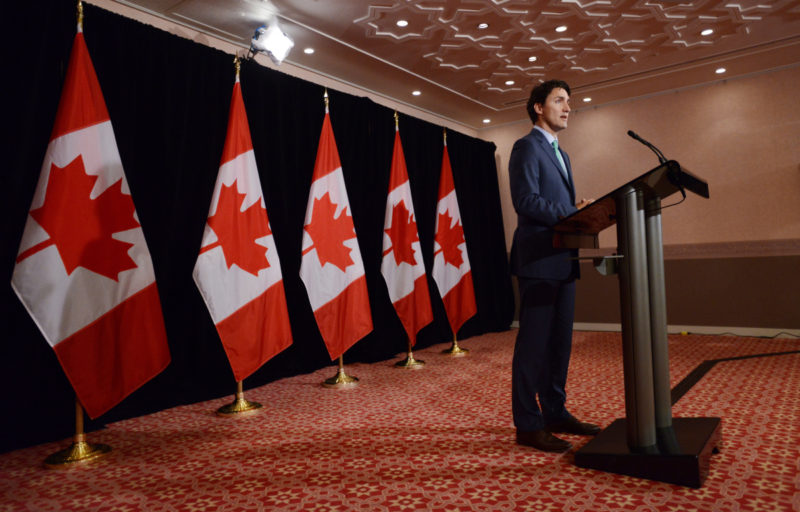The International Institute for Sustainable Development (IISD) has lauded the introduction of carbon taxes by the Canadian government.

On Tuesday, October 23, 2018, the federal government announced a carbon tax on the provinces and territories that did not sign on to the pan-Canadian framework on climate change.
“Starting next year, it will no longer be free to pollute anywhere in Canada,” Prime Minister Justin Trudeau said. “And we’re also going to help Canadians adjust to this new reality.”
Saskatchewan, Manitoba, Ontario, New Brunswick, Yukon and Nunavut will have to pay a tax of $20 per tonne of emissions. The tax will increase by $10 a year until it reaches $50 per tonne by 2022, but most of it will be returned to residents in the form of rebates – which for many Canadians will be more than what it will cost them, the government said.
Economists say carbon taxes are the most effective way to reduce greenhouse gas emissions.
The government announcement means a price on carbon pollution will exist across the country in 2019.
“We applaud the Canadian government for delivering on this critical piece of its climate action plan,” the IISD said in a statement.
According to the organisation, a carbon price will discourage greenhouse gas intensive activities and help Canadian companies creating low-carbon goods and services, such as energy-efficiency services and electric buses, say observers. Analysis from Environment and Climate Change Canada, says IISD, shows that a price on carbon pollution across Canada will eliminate 50-60 million tonnes of greenhouse gas emissions in 2022.
The IISD statement further reads: “We know carbon pricing works and that it can be designed to start reducing emissions without major economic harm. British Columbia, Alberta, and Quebec – provinces that already have a carbon price – were the three fastest-growing economies in Canada last year.
“The system announced by the federal government rightly protects low-income households and sets aside funds to support municipalities, schools, hospitals, Indigenous communities and small and medium-sized businesses.
“It’s not a tax grab; the revenues raised in each province will be sent back to people in that province through an annual tax rebate they can claim on their income tax form. The claimed amount will be the same per person based on the total revenues collected in your province (with a 10% bonus for rural Canadians and those living in small communities). In most cases, the rebate will be more than the price itself, protecting families as it encourages them to reduce costs by taking steps like turning down the heat at night and when no one is home, installing smart thermostats, choosing more fuel-efficient cars and using public transit, walking or biking.
“Provinces that administer their own price on carbon will continue use the proceeds as they see fit – right now that includes rebates, tax cuts and investments in things like renewable energy projects, industrial and consumer energy efficiency programs and transit and infrastructure projects. A province in the backstop system could opt out at any time in the future to administer its own programme.
“The global economy is rapidly evolving to avoid the human, environmental and economic costs of climate change. Canadians are already being hit with these increasing costs. Extreme weather events are becoming more frequent. Higher sea levels put many of our communities at risk. Insurance payouts from extreme weather have more than doubled every five to 10 years since the 1980s. The list goes on.
“We know the risks. We’re paying the costs. The longer we wait to do something, the more we’ll have to pay. A price on carbon emissions across Canada is a good step and it’s long overdue.”
